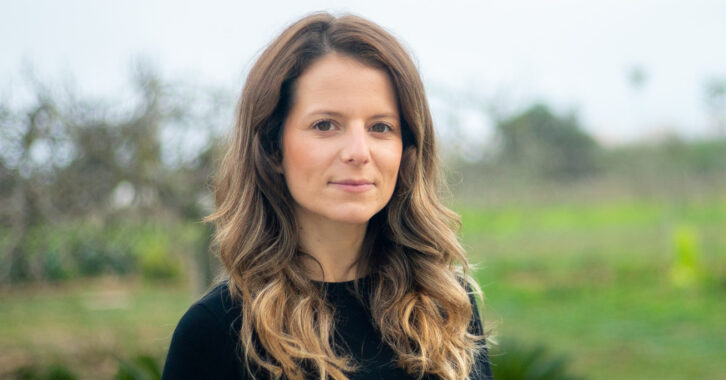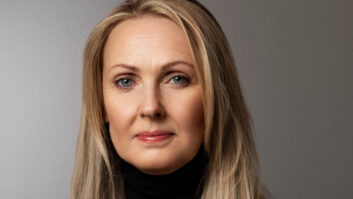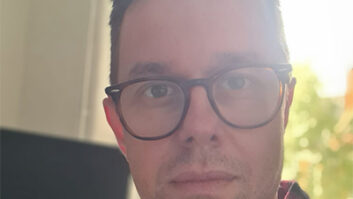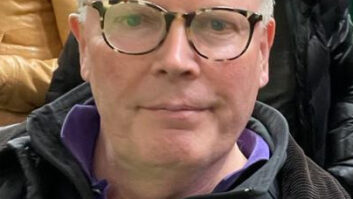Talk us through an average day in your role
No two days are the same in my role as a content producer at Digital Azul. Working in a team that thrives on precision and adaptability means balancing creativity with efficiency at every stage of production. Depending on the production phase, I might be in the office researching, planning shoots, coordinating contributors, or aligning with clients.

My work spans different types of productions–from history documentaries, like a film on the Portuguese Revolution for ARTE TV, where I interviewed key figures who lived through the events, to high-paced live sports coverage that demands agility and problem-solving under pressure.
For the past few years, I’ve been producing content with Digital Azul for Global Champions, the world’s biggest showjumping competition. This level of production requires a team that not only operates at the highest technical standards but also understands the nuances of storytelling in a live sports environment. We follow the tour across 16 international stages, delivering a live studio with expert analysis and exclusive athlete stories.
A typical day on location starts early with a meeting I set and prepare, coordinating with presenters, the sports communication team, and various production units to finalise the editorial plan. Since we operate a remote production, our gallery team is based in Lisbon, while I manage on-site logistics–ensuring the crew and talent are in place, whether we’re filming behind-the-scenes in the stables or capturing cultural moments, like young riders experiencing camel riding in the Saudi desert.
Once the footage is captured, I coordinate post-production, briefing editors and managing rapid turnarounds for next-day releases. Before going live, I distribute transmission schedules and running orders to the Lisbon remote gallery, on-site crew, and presenters. As the on-the-ground producer, I act as the connection between all teams–directing talent, arranging guests, and ensuring smooth execution.
After the final live segment wraps, I debrief with the team and adjust schedules for the next day. Even when the cameras stop rolling, the work continues–finalising edits, managing last-minute changes, and keeping everything running seamlessly in the fast-paced worlds of sports and production.
How did you get started in the media industry?
I’ve always been fascinated by media, especially TV and films that explore real lives and stories. I began my TV career at the BBC as a runner in Factual & Entertainment and quickly moved up to researcher and then assistant producer, working on history, nature, and food programmes.
Travelling across the UK every other week, I immersed myself in British culture–filming stories of people from walks of life, from artists, biologists, to chefs. Research often felt like investigative work, especially when filming a WWII story at a stately home once occupied by American GIs before D-Day. There, I discovered a stack of letters left behind by a soldier. Determined to reunite them with his family, I traced his descendants, and the British military even organised an official ceremony to return the letters.
That first experience showed me the power of TV–not just to tell stories but to bring people together in meaningful ways.
What training did you have before entering the industry?
I initially studied Business Management, but it quickly became clear that the conventional corporate world wasn’t for me. Drawn to storytelling and communication, I joined a production company in Lisbon, working in the marketing department. That experience gave me valuable insight into the TV business, but I soon realised I wanted to be on the ground, involved in the stories that I was selling.
Determined to transition into TV production, I pursued a Master’s in Media Production in Bristol, UK–home to the BBC’s Factual & Entertainment department. My goal was to break into the BBC, but with fierce competition, I knew I had to stand out – so I got creative. A Valentine’s card declaring my love for TV helped me stand out among thousands of applicants. It worked, and once I got my foot in the door, the rest was history.
Why do you enjoy working in the industry?
I love the variety that comes with TV production–one day, I might be interviewing a top athlete, and the next, uncovering the story of a fascinating artist. It’s a privilege to gain access to exclusive places and meet incredible people from all walks of life.
I thrive in the fast-paced environment and the constant sense of discovery this industry offers. But above all, I enjoy the teamwork–collaborating with talented professionals to bring stories to life. The industry is always evolving, and I find the challenge of adapting and staying ahead incredibly rewarding.
What piece of advice would you offer someone looking to explore a role similar to yours?
If you’re looking to break into content production for TV or streaming, my biggest advice is to be proactive–get yourself noticed. Talk to industry professionals, ask questions, and build your network. This industry thrives on connections, and curiosity, adaptability, and strong people skills are just as crucial as technical knowledge.
Study and learn the craft, but more importantly, learn by doing. Seek hands-on experience, ask for feedback, and don’t be afraid to make mistakes–that’s where real growth happens. This is a fast-moving, multi-disciplinary role, and the best producers are the ones who stay curious, keep evolving, and know how to bring out the best in the people around them.
A teacher once told me, “Only good people can tell good stories about other people.” That advice has always stuck with me, and I try to keep it at the heart of everything I do.







